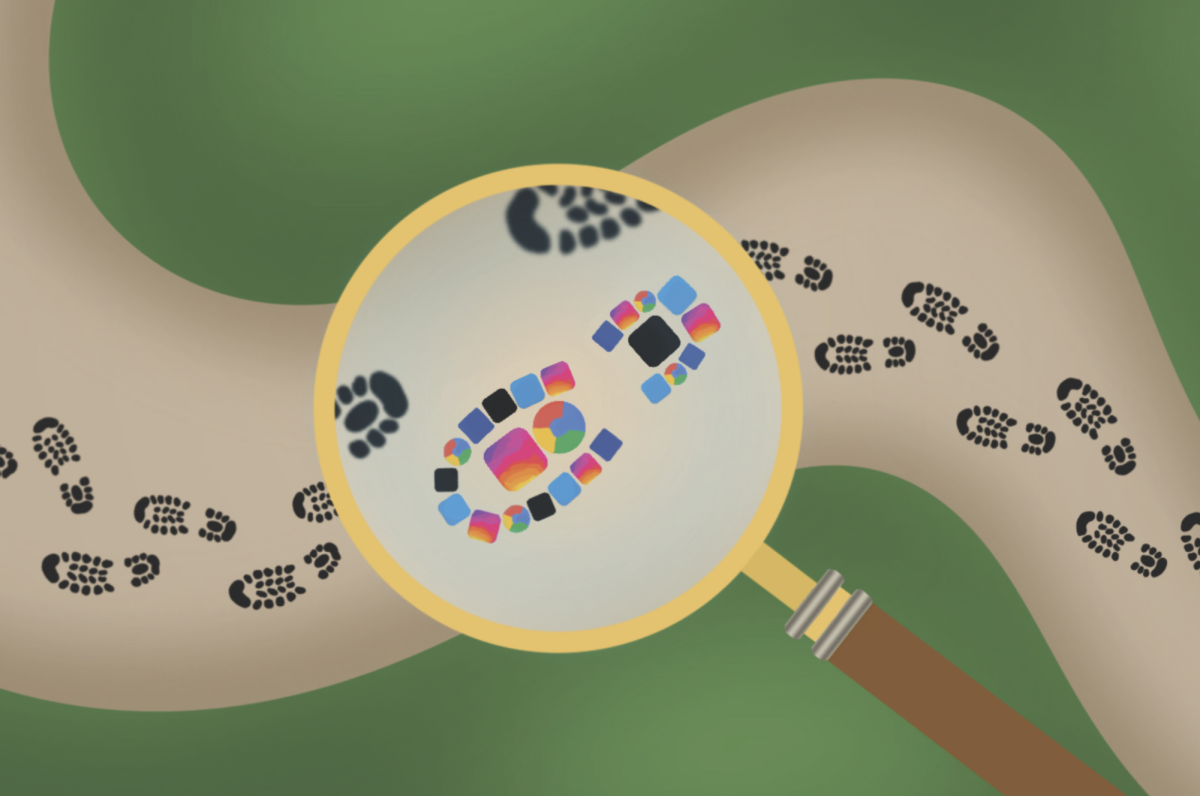When junior Josh Kahn thinks about his digital footprint, it is usually in terms of college admissions.
“I have thought about [my digital footprint], like I know people say elite colleges are looking more at all your social media to see what type of person you are,” said Kahn. “So I have thought about the image you put out of yourself.”
Kaplan, a test preparation company, conducts a yearly survey of over 250 admissions officers from universities and liberal arts colleges across the country. The survey includes questions about the role social media plays in college admissions.
“Our biggest takeaway from our 2022 survey was that 23 percent of admissions officers visit applicants’ social media profiles to learn more about them,” said Christine Lilley, Kaplan’s executive director of K-12 and university partnerships.
“It’s important to remember that an applicant’s admissions chances are overwhelmingly decided by traditional factors,” said Lilley. “So GPA, standardized testing scores, letters of recommendation, personal essays, extracurriculars, and their social media page is potentially one of those factors.”
According to Evan Cudworth, former senior admissions officer at the University of Chicago, it is not common practice for colleges to have access to online information other people cannot find.
If a school wants to admit a student, social media will rarely be a contributing factor to that student’s admittance, Cudworth said.
“We just didn’t have the time as admissions officers to go through and find a reason why we wouldn’t want to admit that student in their social media,” Cudworth said.
According to David Boyle, Glenbrook North college counselor, college admissions officers might change admissions decisions if something is brought to their attention, but they will not rescind admissions offers without letting students express what was going on or explain what the context was.
According to Eva Galperin, director of cybersecurity at the Electronic Frontier Foundation, a person’s digital footprint includes the collective traces of all digital encounters.
Anything where a person’s name, face, email address or social media account name shows up can be included in a digital footprint, Galperin said.
“You need to think about the fact that other people may take photos and tag you with other people, and they post things about stuff that you have done,” said Galperin. “They may mention your name. And all of those things will come up in a simple Google search looking for you if those posts are public.”
According to Boyle, when someone posts something online, that is part of their story.
“Do you want that to be part of your application even though it’s not directly part of it?” said Boyle. “Because it could be.”
According to Cudworth, students can proactively create a digital footprint they are excited about and proud of.
“So whether that’s a TikTok channel, whether that’s an Instagram, it doesn’t have to be crazy,but something that is aligned with your interests,” Cudworth said.
Students can also clean up their digital footprints by removing old content.
“I would recommend people Google themselves, Google your name,” said Lilley. “If you see something that you don’t want others to see, find a way to delete it.”
According to Kahn, he has become more conscious of demonstrated interest and interacting with colleges on social media platforms.
“[Digital footprint has] become more important with admissions,”said Kahn. “But again, it’s still not something I’m constantly thinking about or worrying about.”


